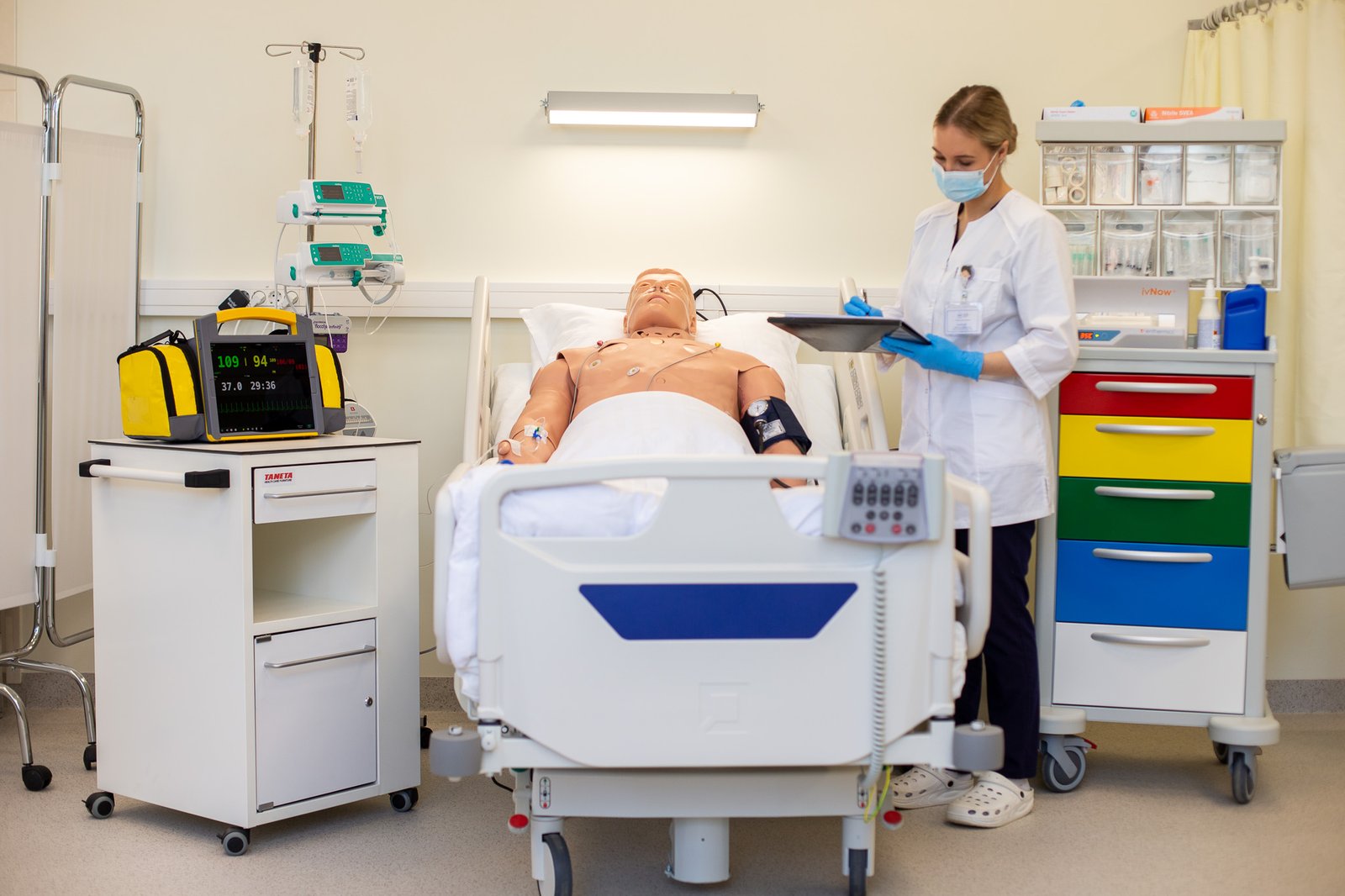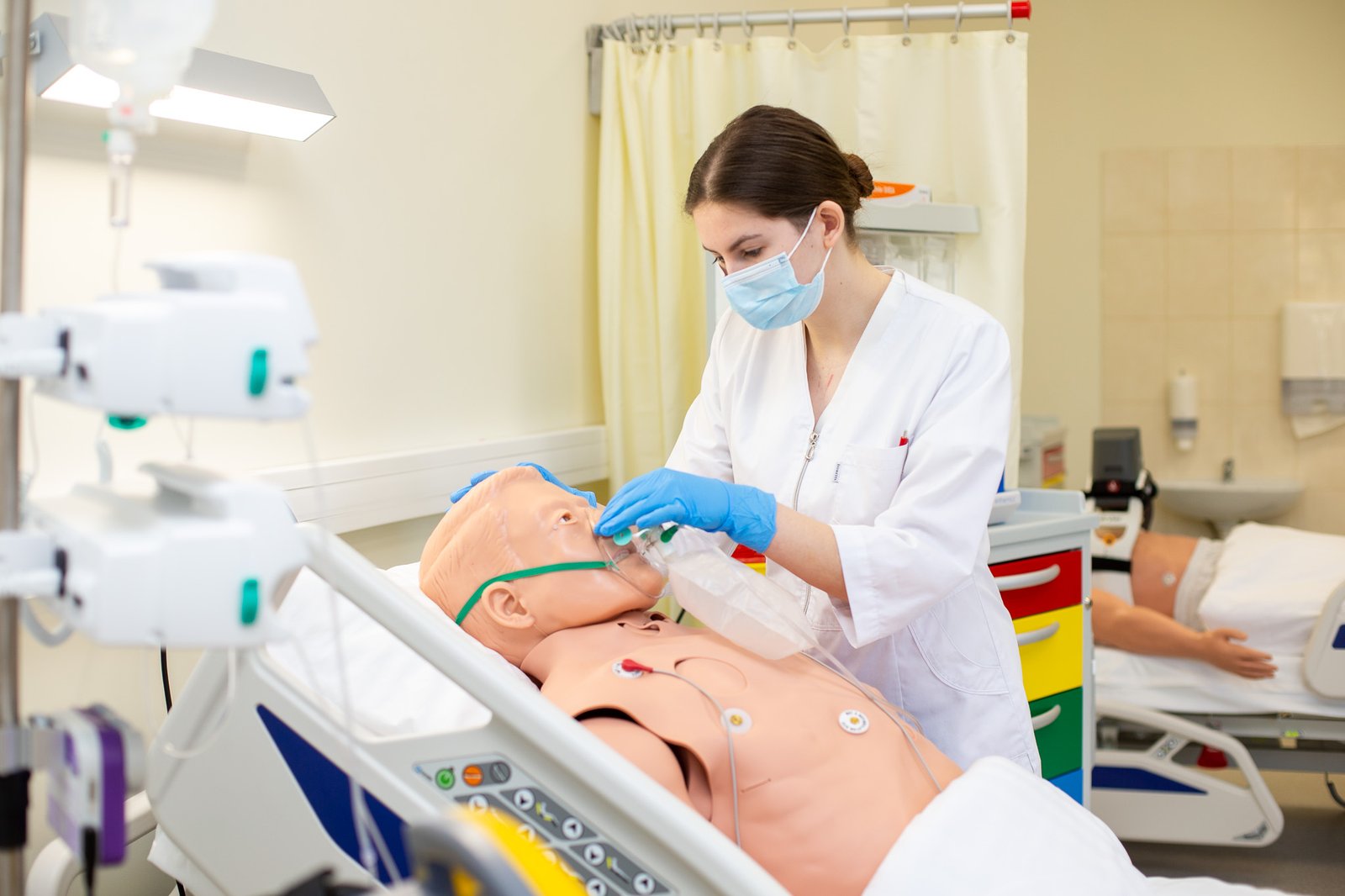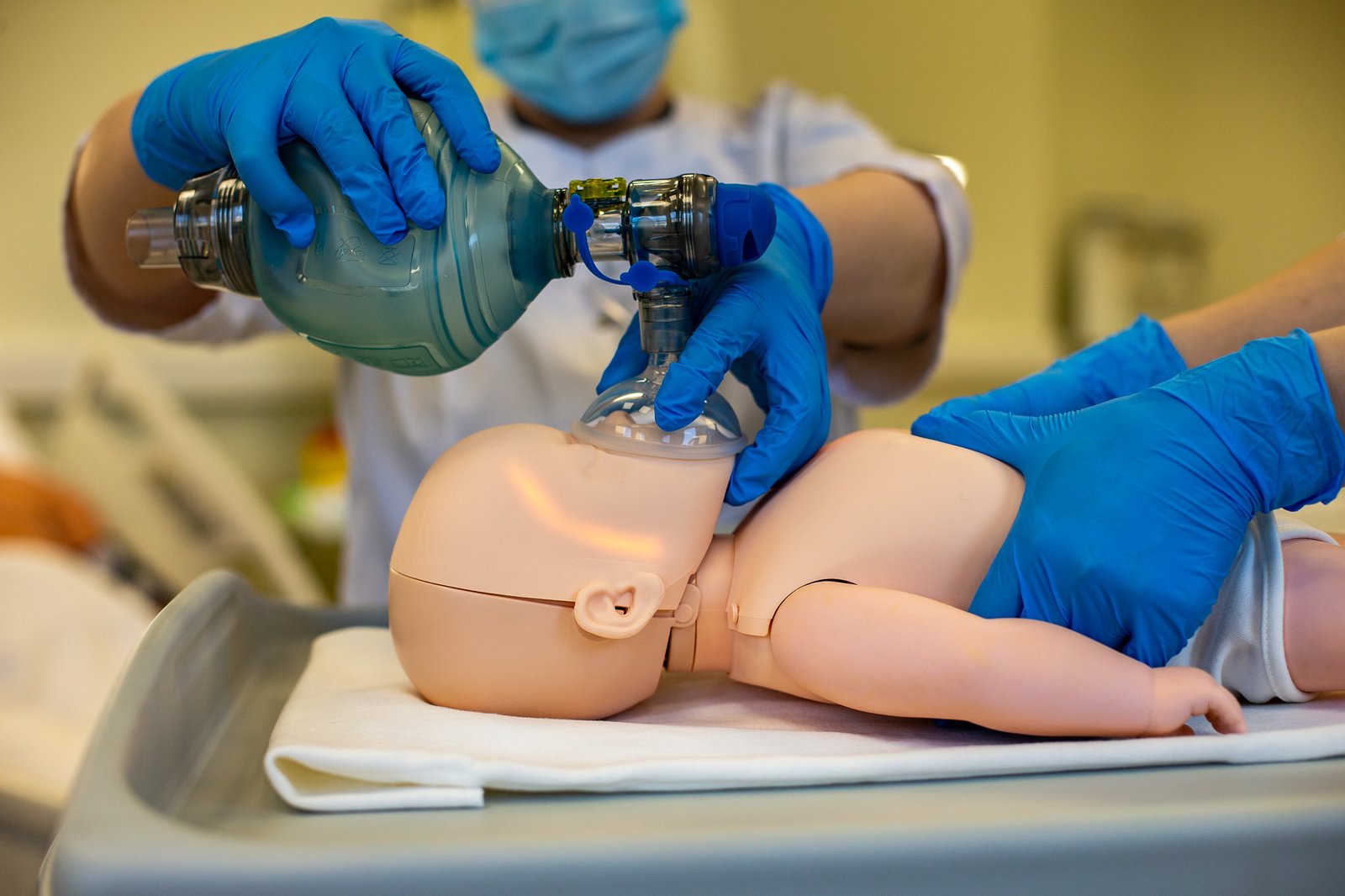Klaipėda State University of Applied Sciences (KVK) has strengthened the infrastructure of biomedicine and technology studies – a Nursing Simulation Center based on artificial intelligence has been opened, which will help to develop the competencies not only of the academic community, but also of the entire region.
Modern medical equipment was purchased for the Nursing Simulation Center for almost 200 thousand euros. It simulates a modern hospital environment in which patient imitations are encountered in a variety of clinical situations, which are created by lecturers based on their clinical practice.
“This is the only modern Nursing Simulation Center in the region of Western Lithuania, which provides opportunities to develop not only the skills required in today’s hospital, but also helps to prepare for the near future, when the health care system will be fully digitalized,” said Dr. Asta Mažionienė, Dean of the Faculty of Health Sciences.
Recreate real vital functions
The Nursing Simulation Center enables current and future healthcare professionals to improve their practical skills by modeling a variety of complex clinical situations and avoiding the risk of nursing errors. At the center, patients are imitated by “Smart Stat” simulations and mimics that simulate individual parts of the body.
The intelligent mannequins simulate the real vital functions and parameters of the patients according to each simulation scenario. The mannequins breathe, their eyes react to light, their tongue swells, their lips and nails become blue, they integrate the functions of the heart and lungs, the points of the pulse and arteries are palpated, the sound of the voice, vomiting and so on. All this helps to empathize with the real situation and react quickly to the symptoms of the alleged illness. At the center, students face the day-to-day challenges of the hospital, only to be protected from the consequences.
“The mannequins and computer equipment in the center are connected in one network. The teacher can assign unexpected tasks to students, e.g. the student suddenly sees that his patient stops breathing, his blood pressure drops, that he is dying, and the student must quickly make the right decision to rescue the patient.
Such teaching conditions construct emergency medical care algorithms in students’ thinking, teach them to make life-saving decisions in extreme situations, and develop critical thinking,” said Dean Dr. A.Mažionienė.
Resuscitation equipment is also installed
The premises of the simulation center reproduce the real conditions of the hospital. The center is equipped with hand hygiene stations, oxygen concentrators and surgical fluid aspirators, solution heaters, infusion and enteral feeding pumps, video laryngoscopes. In addition to the pride of the “Smart Stat” mannequins, the LUCAS resuscitation system and advanced life-saving technology, which expands medical care and reduces the risk of patient transportation by maintaining chest compressions during transportation, are worth mentioning.
The equipment of the Nursing Simulation Center is constantly updated and supplemented with new nursing and medical equipment. The center allows for faster integration and development not only of knowledge of advanced innovative health technologies, but also provides opportunities to improve digital competencies and develop applied research activities.
The nursing simulation center will soon be complemented by special sensors that will be associated with a future breakthrough in medicine. These sensors are attached to patients, continuously recording their health status and sending data to computer equipment available to healthcare professionals.
The new training base is expected to be used successfully to develop adult competencies. The region will be able to improve the qualification of health care professionals in the region – nurses, doctors, paramedics, as well as soldiers training in emergency medicine.
Training for midwives will also begin
About a hundred general practice nurses obtain professional bachelor’s diplomas at KVK every year. Already next autumn, KVK is planning to launch a new study program in health sciences – midwifery.
The data of the survey on the need for obstetricians showed that (59.7%) according to the representatives of the health care institutions who participated in the survey, the need for midwives in the region is undoubtedly relevant. The majority of the surveyed institutions (59.7%) forecast a shortage of midwives in the region by 2030.
It is hoped that in this way the missing midwifery jobs in the region of Western Lithuania will be filled. The demand for midwives is also expected to increase steadily in major cities due to the age and migration of older midwives currently working.
The origins of the training of nurses at KVK date back to 1934, and from 1945 to 2000, midwives were trained at Klaipėda Medical School (now known KVK).







